The ongoing economic reforms by the current administration in Nigeria have no doubt had a lot of impact on the economy and the citizens in the last nine months. In an exclusive interview with Prime Business Africa’s VICTOR EZEJA, foremost Professor of Political Economy and Entrepreneurship, Pat Utomi, speaks on the state of Nigeria’s economy, emphasizing the need to scale up production as the only way to boost food security and increase foreign exchange earnings through exports among insights on improving the economy.
Here are the excerpts:
Join our WhatsApp ChannelHow would access the ongoing economic reforms of the present administration, looking at foreign exchange, and subsidy removal among others, are you hopeful that the country will get out of the woods in the near future as promised, with the inflation rate rising unabated?
Nigeria is in a serious economic crisis. This crisis is essentially underlined by the nature of headline inflation which is running out of control. People see the money in their pockets, and their salaries and everything just disappearing before their very eyes. They go to the market in the morning, and they return in the evening and what they bought in the morning, now costs so much more in the evening. Inflation has always been a terrorist to the citizens because it just eats up their financial resources. we’re also dealing with a situation where there are significant food shortages caused by a variety of factors, but the fact is that we have been importing a good part of the food we eat, and exchange rates have gone haywire. There isn’t enough foreign exchange availability. So, supply and demand mean that the naira value has fallen very low and what gets imported is increasingly out of the reach of most ordinary people.
READ ALSO:
- Nigeria’s FX Crisis Will Continue Until We Scale Up Production For Export’
- Why Nigeria’s Economy Slips Down The Alley- Obi
- Food Security Critical To Economic Development, Says Agric Minister
There’s of course, a high rate of unemployment, which means that only few people can actually earn and use that income to take care of themselves. There is, in addition to all of these, huge insecurity in the country, which has made food security very difficult. When there is this kind of security that people can’t even go to the farms then you need extraordinary kinds of policy intervention to ensure that people can find food at affordable rates because that is fundamental to everything. So, when do you begin to deal with these from the point of the kinds of the promises made by the people in power, and the possibilities of what can be implemented.
Let me say that in many ways, the crisis gave notice. Unfortunately, in Nigeria, there are not too many people who like to speak the truth, especially when the truth can ruffle the feathers of power. In 2015, when the Ibadan School of Public Policy and Government was being launched, I had the pleasure and the privilege of being the speaker at that event. And after the event media, of course, as usual, descended with all kinds of interviews. General Buhari had been sworn in at that time and he didn’t have any cabinet, but he had traveled abroad. And while he was abroad, he was speaking on policy, and making pronouncements that you could consider dirigiste. I was worried and I made some very, very strong remarks pointing to the direction that Nigeria was likely to be traveling if that was Buhari’s inclination. Many people in the APC who had better foresight or better understanding just did not make the effort to go to him as commander-in-chief and say please let’s sit down and discuss this thing. Is this how you think we should be going or that way? Of course nobody did, everybody just kept quiet, so Pat Utomi is the only bad guy who said no, this is not how we should be going. Well, the long and short of it is that Buhari gave us a bit of some of the most horrifying years in leadership history in Nigeria, such that by the time he was done, the economy was in near tatters. And then the succession process became a real nightmare, as we know, we came out in a legitimacy crisis. Very few people accept that the person who is there won the election. We may not know what their real outcome is, but at least everybody is fairly confident that he didn’t win the election. Now when you have that kind of legitimacy crisis then policy implementation becomes very difficult. One of the first things that a government that has a legitimacy crisis deals with, is to try and shore up legitimacy.
A particular case is that of the Trump’s regime. What they did was jump at being warmly welcomed in Washington and Paris. If you were accepted by their saying that they would go by the prescriptions of Bretton Woods institutions that would be good for them, they thought. And so, they were in a rush to do the bidding of Washington and Paris. You can see how that went terribly bad in the case of the attempts to cower Niger and the rush to remove the so-called petroleum subsidy without putting anything in place to ensure that you manage it well without breaking the economy. Because you are going big bang. If you are going big bang there are consequences and you have to plan for how to manage the consequences of big bang. So, those things were not thought through properly and the result is that the economy went into a confidence crisis, let’s put it that way. Because there’s a confidence crisis, you have a number of things happening at the same time. The multinationals are leaving. Of his own, that is not the end of the world. However, if you’re going to have the multinationals all rushing out you are going to have the best strategy for those who would move in to take over and how you can encourage them to do what those multinationals were doing even bigger and better. But there is no strategy and so, multinationals are leaving, and everybody is looking hard on their heads and all of that, and we have therefore, come to a very deep end where we’re struggling to swim. This is what the crisis now truly is. It’s about how do we begin to tackle those problems in a way that is acceptable for most of the people and therefore will be appropriately implemented. We are in a major, crisis.
Looking at the economic situation in the country today, the runaway inflation and all of that, what are your thoughts on the solutions?
The Central solution is production. The problem has always been that Nigeria has not been producing. Nigeria has this rentier political class that’s constantly rent seeking and has not been able to look the business of production in the face. Now, there’s no escaping it, we’ve got to go dramatic in trying to deal with production.
Boost agricultural production to tackle food crisis
How do we do that? I believe that the first thing you deal with as people are getting hungry and angry is food. Look for the low-hanging fruits. Rainy season is just about to begin. There are legumes and food produce that can mature in three months when you just plant them, but most people can’t go to farms, because there is insecurity, so who is gonna grow beans and do whatever it is that will be available in three months to reduce the food pressures. Well, you need to consider this as a national emergency and use incentives like the conditional cash transfer system. This gonna have to be done at the local level, not a federal government thing, that’s where corruption kills it. You work out an arrangement at the local level, whether it is local government or state level, whatever it is. You essentially move out the army to go and man agricultural areas and give them an incentive. Anybody who would grow X, Y, Z gets a certain kind of cash transfer on the condition that you do x, y, z. And you then put so many people to work and grow foods that will mature within three months. That way you deal with the food shortage thing.
Boosting security around farms in local areas.
You also put so many people immediately to work in the security sector. It’s such a shame to say that in the 21st century where you can read the name tag of a soldier from the satellite office space, we don’t know who is kidnapping people. With a little bit of use of technology, we can identify everything happening in our forest, we can target those people who are causing this and deal with the matter squarely, but you need policing that is local. I’m glad that the last meeting with the governors produced a commitment to state policing but it’s gonna be much more than that. I always give the American example. When I lived in a college town in America. The university had a police force, armed men, and everything, a complete police force. The city had its police force, the county within which the city was located had its own police force, the state had its state troopers, and if you had any human rights violation thing, the FBI steps in. So, security is so important, and we have such a small percentage of our population involved in the policing function relative to most societies. And I think that we should not shy away from massive recruitment of people, especially from the very local levels, training them properly. Whether you call it a vigilante service. They protect the towns, they protect the farms, and then with incentives, people go out and begin to farm massively making short-term outputs.
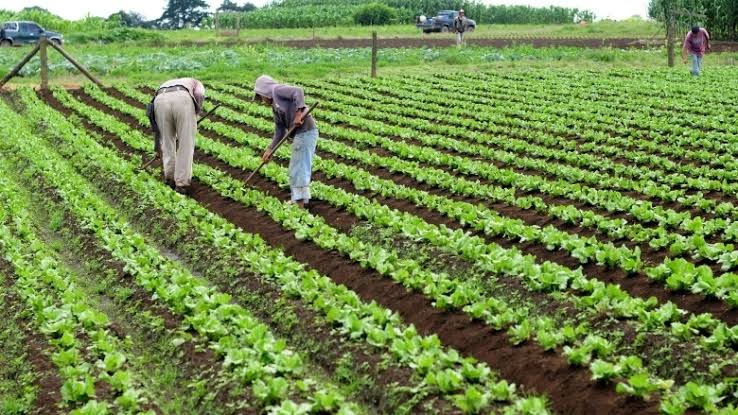
Then, you begin to create clusters within these farming areas that can process and add value to the products coming out of those farms for exports, local consumption, and all of that. You place all these unemployed young people in apprenticeship schemes, again, using the same conditional cash transfers system, give them some income on the condition that they are learning, and that learning converts them to people who can now work in the new factories that will come up.
READ ALSO: Nigeria’s FX Crisis Will Continue Until We Scale Up Production For Export’
But you need to create a national strategy. Nigeria doesn’t have one that I know of. The strategy that I have been prescribing for some years is one based on factor endowments in which we use latent comparative advantage to build value chains in areas where we have strong factor endowments, and even make education local, sensitive to a particular factor endowment of an area and then take young people, who from primary school, if they live in a sesame seeds producing area, make sure their curriculum includes Sesame seeds processing, how to increase the yield.
Nigeria in agriculture has one of the lowest yields per hectare of anything in the world, compared to other African countries even, compared to Egypt, from Nigeria, not to talk of compared to what happens in Latin America and Europe. So, all our education will help deal with that yield factor. And if we put massively, people into developing their entrepreneurial skills, training them as they’re producing, we will transform things very quickly. So, it is possible to do things quickly. For a long time, I keep giving examples from Southeast Asia. Let’s leave Southeast Asia now. There is an example I want to use for those whom it is quite esoteric. How did Nigeria go from 1956 to 1960 with almost zero industrialization in 1956 with manufacturing being 20 per cent of our GDP by 1960. How did Nigeria go between 1956 and 1964 and create all these massive agricultural estates, the so-called farm settlements across most of Nigeria. Let us go back and look at what our independence fathers did just coming into government and return to those same strategies to grow this economy very quickly put many people to work and begin to change the trajectory of things because unless we produce, we are wasting our time. If we borrow from the World Bank to shore up the exchange rate, three to four weeks later, the billions of dollars borrowed will be exhausted, especially because we have so much corruption. We have all these naira that is now being created. The Naira is going to state governments, and we are not seeing what they’re doing with it.

In the 50s, production was bottom-up, the states or some national governments created most of the opportunities. Today, they don’t know what they’re doing. So, they just collect the money and the governors go to Bureau de Change, and change it to dollars, putting more pressure on the exchange rate. So, if we were to go back to the basics of what was done in the 50s, we would find that we can grow even faster than what was the case between 1956, 1957 and 1960. That’s what we want to be doing now. But the government has a legitimacy crisis and doesn’t seem to have a to-do spirit, hiding behind theory. So, he must find a way of creating that. I give an example again. During the military crisis of 1966, General Yakubu Gowon, a young man, 32, who is in power, realizes the nature of the crisis, puts together some politicians across the board, who are more experienced and all of that; a more or less government of national unity, and they begin to deal with a civil war that suddenly fell upon the country. I think that anybody who has sense now, should be looking to bring together this weak political class and you either deal with what some people call class suicide now or you destroy a country and that can lead to better communication with the people to mobilize people to recognize that we are in an existential crisis, a moral equivalence of a war, that’s how we can begin to deal with this problem.
Recently, the IMF released a report where it commended Tinubu’s administration for the economic reforms so far, and recommended that electricity subsidy should equally be removed, what would be your take on that with regard to its economic implication both on consumers and the power sector?
You see, the Bretton Woods institutions, are sometimes their own worst enemies from the way they jump into things without looking at local circumstances and all of that. Ideas that come from the IMF or the World Bank are not necessarily illogical as some ideologues dismiss them. There is a logic to the removal of subsidy, but there is a consequence for how you do anything whatever it is. The young technocrat in Washington is not the person most likely to understand the consequence of this. So, they must take a local Intelligentsia, with sensitivities but without being ideologically negative, that can say no, this is not how you sequence things. An example, we should have been out of the subsidy game many, many years ago as a country. We know that most of what was called subsidy eight to nine years ago was just pure corruption. People were bringing in shiploads of petrol, go out, come back two or three times to count it and count the subsidy that they would get, whereas no such thing came in. Just look at the numbers of fuel consumption in Nigeria, you know that something is so deeply wrong that you cannot continue that subsidy system. Look at Pakistan and their population, look how much petrol they consume compared to California compared to Nigeria. So, obviously, there’s a phantom subsidy, so to say.

However, you don’t just announce the removal of something without putting some plans in place. I have argued for example, that you don’t subsidize consumption. you subsidize production, if you have to subsidize. We know that Americans subsidize agriculture. We know that the French get into demonstrations all the time, regarding subsidies in agriculture. How do we make our subsidy if we should have any, in the arena of production? what will stimulate production? These are some of the things I have argued already many years ago, that we should ensure that we covert all mass transportation to CNG. When you come to this kind of situation, where people will pull up in their big Lexus Jeeps and buy petrol at one-tenth what it costs across the border and distorting the economy, because the economy is about incentives, and you don’t distort incentives in the economy. If that happens, these guys will continue buying these big SUVs and wasting people’s resources in the subsidized petrol that they buy. But if all the mass transport vehicles are CNG-powered, so that people can get to places of production, we will subsidize CNG for X number of months or years. So, that they can sell a rate that public transportation will be very, very cheap, but if we just say let’s remove it, you will hurt yourself badly and I think that we should be careful.
For example, globalization was something that many traditional economists supported in the United States very much because of the impact of trade and how it goes. Nobel Prize winners like Paul Krugman were very big on it. After Trump came and pushed some nationalism issues, in terms of trade with China, Paul Krugman began to revisit his views and say maybe he was wrong about globalization. Years earlier, Joseph Stiglitz, another Nobel Prize winner in Economics had written the book ‘Globalization and its Discontents’, basically trying to point to challenges for national economies in the face of globalization, and we saw his colleague at the Institute in Colombia, who is Indian, Jagdish Bhagwati, write a competing book in titled ‘In defence of Globalization’. This again brings us to the point that Economics is not a perfect science. There are many ways to skin a cat. Where there is locally generated indigenous knowledge that is patriotic but not necessarily just a rabid rejection of set views, then you can have people say, yes, we know we should get rid of subsidies, but there is a way should go about it that will not hurt this economy, that will allow growth to continue.
I quite frankly believe that the examples we saw during the Asian financial crisis where George Soros and co, were attacking currencies of Southeast Asia and we use that to determine something then we’re being unreasonable, not being fair and just like Stiglitz, accusing the World Bank and the IMF of forgetting their traditional roles and making themselves debt collectors for Western banks that made a wrong call over lending to poor countries when they didn’t need it. We were in Nigeria in 1976, when they said we under-borrowed, and General James Oduleye, then Federal Commissioner for Finance went off in search of jumbo loans because the Western banks were trying to recycle petrodollars in their vaults and shortly after, we’re all in a debt crisis, and they were trying to relive us and problems, whereas as Stiglitz argued, they should have taken the heat for being irresponsible in lending us the way they did that time they were struggling to recycle petrol dollars.
So, what we need is an indigenous knowledge that can enable us interrogate advice, counsel from such institutions, not just follow them hook line and sinker or reject them, as some people tend to do. No, it is a more nuanced thing, and you need a local intelligentsia class of thinkers, who can look at the best interests of the stakeholders or what we can call ideological thrusts.
I don’t think we gain too much by this dismissive thing about IMF as their bloodsucker, as it doesn’t make sense to say that. At the same time, like Mahathir Mohamad did in 1997, we should be able to say sorry, we’re not going to borrow up to $3 million to shore up our exchange rate, and we’re not going to do exactly what you say about subsidy removal because we think it should go like this and like that. After all, in 1997, the World Bank’s prescriptions to Thailand, Indonesia, and Malaysia, Mahathir Mohamad rejected their recommendation and, in the end, Malaysia was the first country to pull out of the Asian financial crisis, and the World Bank and IMF people had to quietly confess that the choices made by Mahathir Mohamad were superior to the ones they were prescribing. So, we do need to be able to interrogate these things, but not to get a just negative attitude of World Bank or IMF. We should do the needful.
Victor Ezeja is a passionate journalist with six years of experience writing on economy, politics and energy. He holds a Masters degree in Mass Communication.

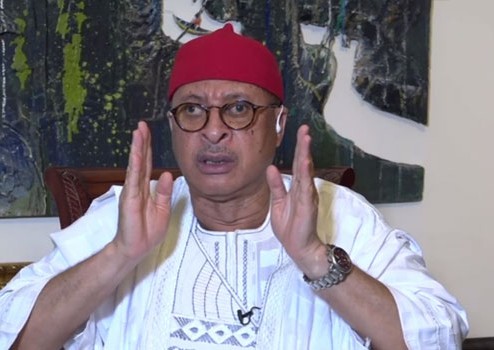



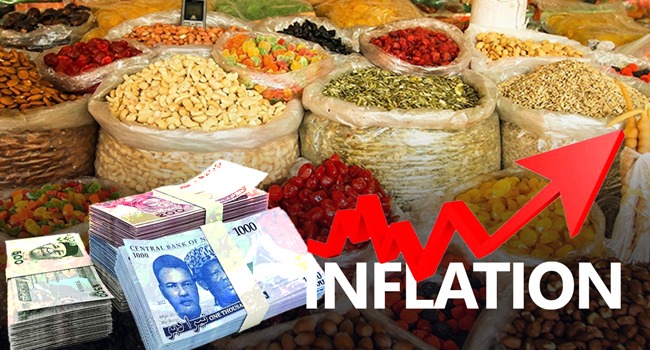


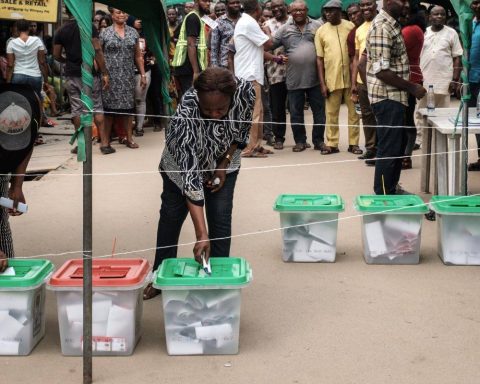


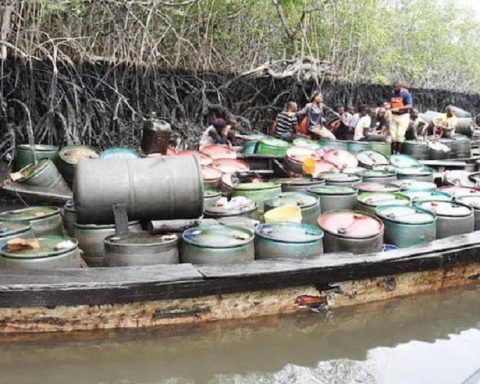




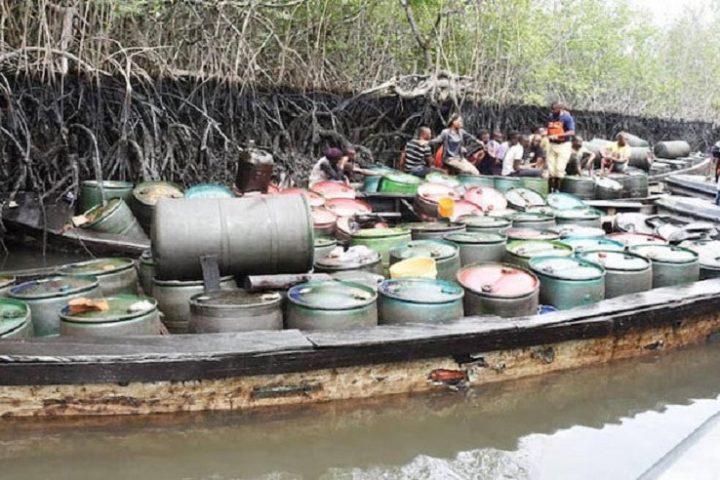
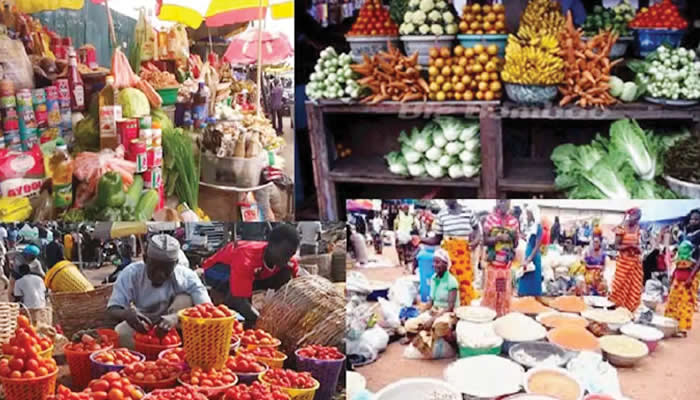

Follow Us